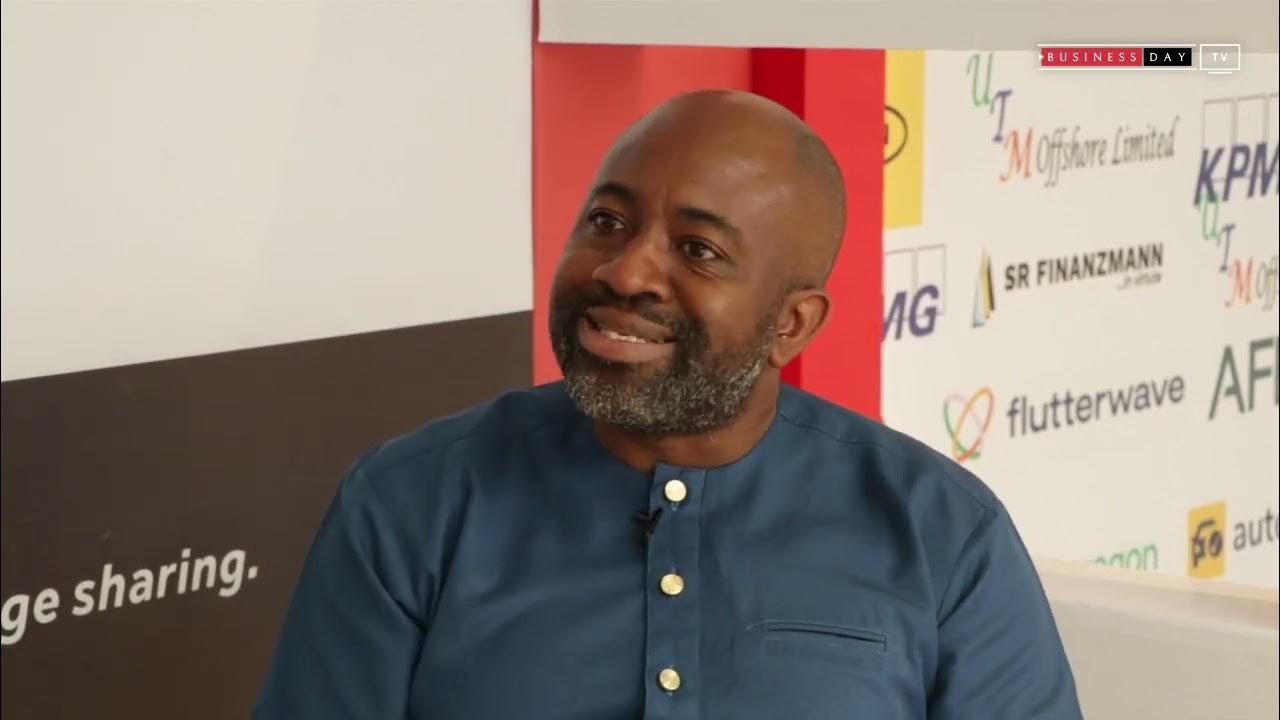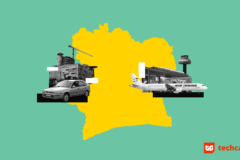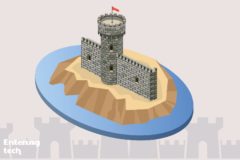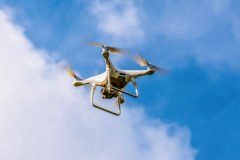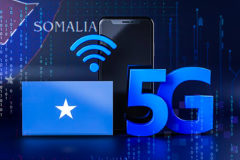Keynote speech delivered by Oswald Osaretin Guobadia, managing partner DigitA, at the 2023 Lagos Business School Tech Founders Summit.
This subject is deeply rooted in the problem we must solve. The digital age has brought unprecedented opportunities, but it has also revealed a stark reality: the existence of a digital divide that threatens to deepen existing inequalities. It is our collective responsibility to ensure that this divide does not become a chasm and that every citizen of Africa can benefit from the digital evolution.
Why is this important?
The answer is clear: digital inclusion holds the promise of transforming societies and economies, uplifting communities and individuals, and fostering innovation and growth. I strongly believe that in the near future, a nation’s poverty line will share coordinates with its overall digital literacy and access levels. Essentially, a country’s economic status will be linked to the extent of digital training and access of its producers and consumers. The efficacy of consumer access and producer enablement will define the economic vitality in the society.
Digital inclusion enriches lives, but only for those who have access to connectivity. While the pandemic accelerated the adoption of digital systems in Africa and across the world, universal connectivity remains a distant prospect in the least developed countries. In the United States, they have offered states grants to support universal connectivity initiatives, as it was discovered during COVID-19 that a large number of citizens were essentially offline.
The International Telecommunication Union (ITU) states that 2.9 billion people globally remain offline, that is around 37% of the world’s population.
As of 2022, only 40% of the African population had access to the internet, leaving over 871 million people without any form of access. Now, with a ratio of 2:8 rural-to-urban access where 64% of urban dwellers had access to the internet compared with 23% of people in rural areas, people from poor communities, indigenous, and ethnic minorities, remain disconnected from an increasingly interconnected world.
It is noteworthy to mention that this digital inequality doesn’t end with supposed poor Africans only; it also manifests majorly between genders. Women make up about half of the world’s population, but despite recent advancements, they still make up a disproportionate—and growing—share of the offline population, with South Asia and sub-Saharan Africa having the largest gender gaps globally. In Africa, it is estimated there are three men for every two women online.
For these demographics, the potential of information and communication technologies to foster connections, facilitate essential services in healthcare, education, finance, commerce, governance, agriculture, and facilitate information sharing remains vastly untapped.
One of the major factors responsible for Africa’s lags in internet connection—compared to global averages among youth, women, and those in rural areas—is the lack of access to internet-enabled devices.
Internet-enabled devices like smartphones are critical for access to the digital economy and their affordability has improved steadily over many years. However, it still remains expensive for many Africans, with the cost of the cheapest available smartphone being equivalent to about 39% of the average monthly income.
For a large population, smartphones remain out of reach, especially for women and people living in rural areas.
Other accessibility barriers in Africa, include power shortages, high internet costs, and inadequate infrastructure. For instance, lacking power impedes mobile network establishment, leading to fewer devices in use. Moreover, device affordability poses another challenge, where network availability doesn’t translate to access due to actual device cost. We can die of thirst sitting on the ocean.
So, who are these consumers and producers? To avoid delving into technicalities, let’s consider digital consumers as the user base or citizens from a governmental standpoint. Producers can be seen as founders and operators and also citizens. Producers innovate, creating markets, while consumers engage, deriving value and impact.
In essence, the link between digital inclusion and economic prosperity is undeniable, and addressing barriers to access is crucial for Africa’s progress.
What is the opportunity?
I know that it has been established that there is a significant gap in digital access between urban and rural areas, as well as disparities along gender and socioeconomic lines.
Ladies and gentlemen, there is more hope than despair. These statistics paint a compelling picture. What this means for us is the numbers are not just a challenge; they are also an opportunity waiting to be seized.
Consider this (just 3 examples):
- Africa has the youngest population in the world, with over 70% of its inhabitants under the age of 30. Such a high number of young people is an opportunity for the continent’s growth–—but only if they are empowered to realise their best potential. Involving young people in politics and society is not merely a question of inclusion, but one that is vital for economic growth, innovation, peace, and security.
By empowering these young minds with digital skills, we unlock a potential workforce that can drive technological innovation and economic growth.
By 2030, young Africans are expected to constitute 42% of global youth.
This means that Africa’s youth hold the key to its development potential.
- In 2019, a GSMA report estimated that closing the gender gap in mobile ownership and use could deliver US$140 billion in additional revenue to the mobile industry over five years. Closing the gap would also deliver an estimated US$524 billion increase in economic activity by 2025.
- Mobile technology has already demonstrated its transformative power across the continent. The mobile money revolution, for instance, has provided financial services to previously underserved communities. Harnessing similar innovations could unleash tremendous progress in education, healthcare, agriculture, and more.
What does digital inclusion look like?
Digital inclusion encompasses not just access to technology, but the ability to use it effectively. The stakeholders involved include governments, private sector entities, civil society organisations, educational institutions, and the communities themselves. At its core, it’s about ensuring everyone, regardless of their background, can participate in the digital world. It’s about equipping individuals with digital literacy skills, allowing them to access information, services, and opportunities.
It involves establishing proper policy, legal and institutional frameworks, and reducing the digital divide through collaboration and partnership amongst the various stakeholders.
Inclusion is linked to expanding the addressable digital market in Africa. When digital solutions are designed with inclusivity in mind, they reach a broader audience. For instance, a mobile app that is accessible to users with lower-end smartphones and slower internet connections ensures that a wider range of people can use the service. This expansion of accessibility directly translates to a larger market opportunity.
Digital inclusion also plays a crucial role in assembling the best teams. A diverse team is more likely to mirror the potential customer base, making it simpler to produce goods and services that appeal to many demographic groups. By embracing a wide range of ideas and experiences, this helps to produce superior value. Teams that are inclusive draw from a range of perspectives, which can result in more innovative and all-encompassing solutions.
So, navigating the path
Nigeria has a unique opportunity to take a leading position in the global digital economy. All over the world, governments are central to enabling innovation within their countries, and the Nigerian government is no exception. We must embrace the digital economy as it is crucial for Nigeria’s future prosperity and global competitiveness. By prioritising digital transformation, we can unlock new economic opportunities, create jobs, and improve the lives of our citizens. If we champion this cause and ensure that the necessary steps are taken to harness the full potential of a digital evolution, we might have just unlocked the best alternative to our current major revenue earner: oil.
Many have argued that data is the new oil, but I would like to state that the new oil is the entire value chain of human resources. In essence, we do not want data to become the new oil, we must own the entire value chain of this critical resource.
Earlier I mentioned Nigeria has a unique opportunity to take a leading position in the global digital economy. Nigeria has a young intelligent population that can be trained; we have a huge population that can be a test ground and potential market and we have real hard problems that can be solved with digital solutions. So it’s fair to say the opportunity is a young intelligent population that we can train to solve our real hard problems through market-creating innovations and services.
Our path to this opportunity is multi-faceted and requires concerted efforts from all stakeholders. This includes a reconsideration of universal access and broadband policies, collaboration between governments and stakeholders, multi-sectoral policy development, infrastructural buildout, and facilitation of digital literacy initiatives. We must establish strategies and interventions that specifically address affordability as a pivotal barrier to access.
The digital divide in Africa is not just a technological hurdle; it’s a moral obligation. Bridging this divide is about empowering individuals, uplifting communities, and propelling our nation forward. Let us unite in our commitment to making digital inclusion a reality, ensuring that no African is left behind in the digital era.
Have you got your tickets to TechCabal’s Moonshot Conference? Click here to do so now!







